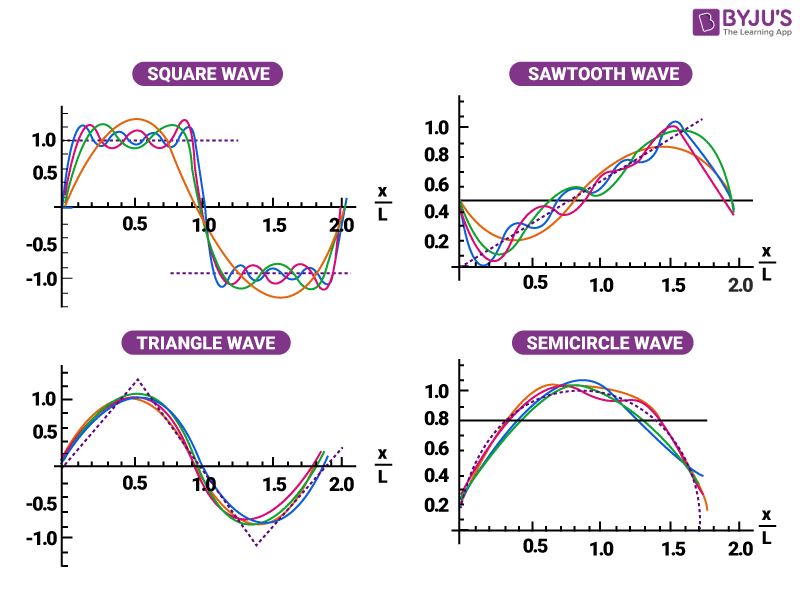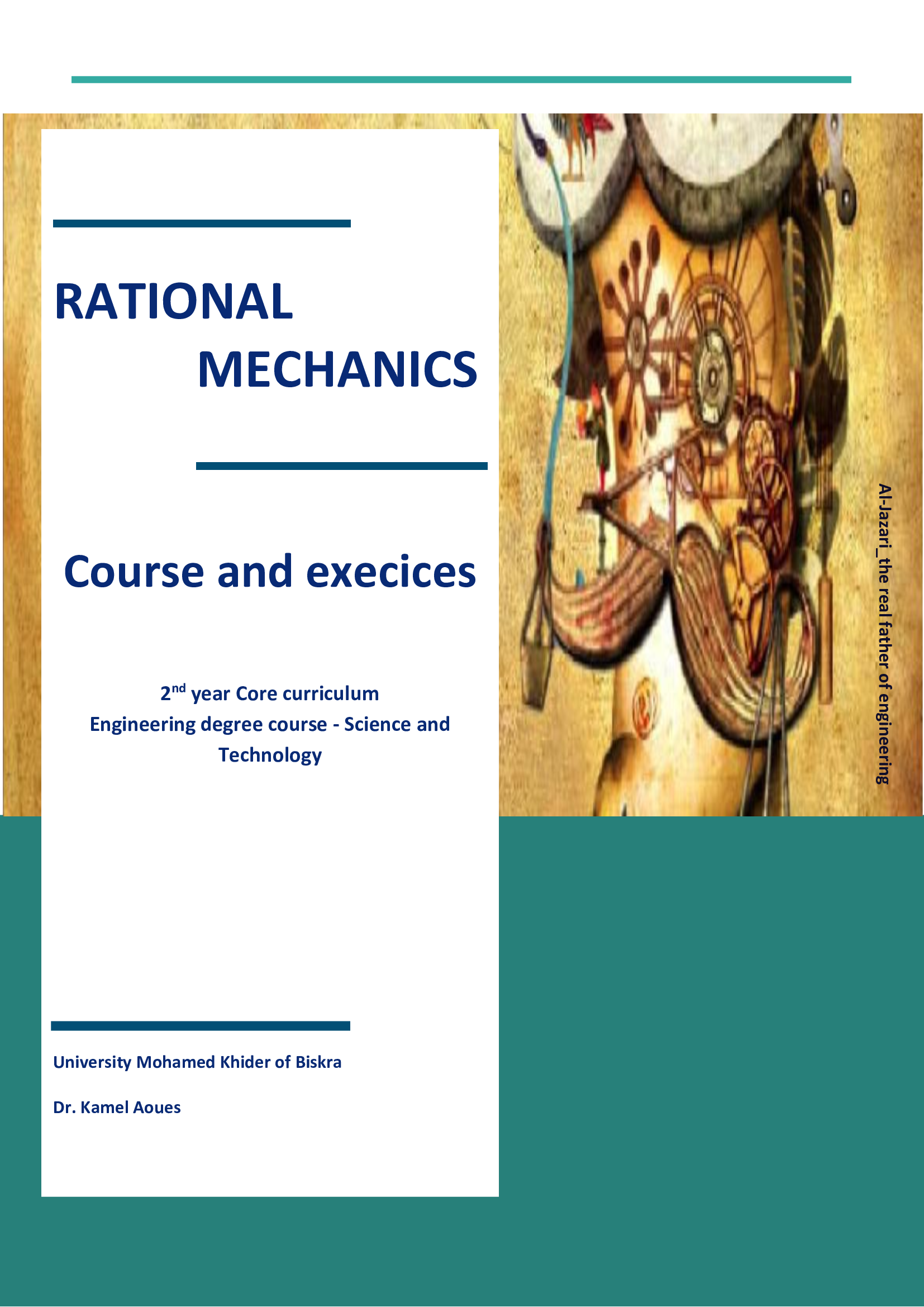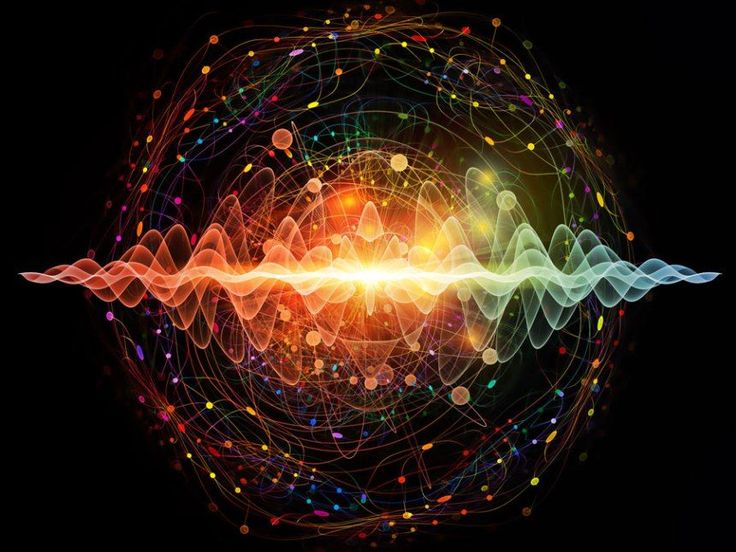
- منشئ المقرر: Toufik DJIMAOUI

This course, "Health, Safety and Environment (HSE) in Industrial Installations," serves as a cornerstone for building a responsible engineering culture. It is designed to provide second-year engineering students (whether in Industrial Chemical Engineering or the common core in Science and Technology) with the fundamental principles and practical practices for managing occupational and environmental risks in the industrial sector.
The course is taught in the first semester of the academic year and focuses on applying HSE concepts to the safe design and operation of industrial processes, with practical examples drawn from the chemical and industrial fields. The goal is to prepare engineers who are capable of designing and operating facilities that not only produce but also provide a safe and sustainable work environment for all.
- منشئ المقرر: Dr. Wassila Grine

- منشئ المقرر: Sana Almi
- منشئ المقرر: Toufik DJIMAOUI

This course provides students with a comprehensive understanding of the fundamental principles, classifications, properties, and engineering applications of composite materials.
Target Audience:
Second-year engineering students.
Course Objectives:
By the end of this course, students will be able to:
-
Identify the various types of composite materials and their constituent components.
-
Explain the roles of the matrix and reinforcement in determining the overall properties.
-
Understand the relationships among microstructure, manufacturing processes, and mechanical performance.
-
Select appropriate composite materials for specific engineering applications.
- منشئ المقرر: Toufik DJIMAOUI

The General Electricity module is an essential part of engineering training. It enables students to acquire the fundamental principles governing the behaviour of electrical circuits, while developing a rigorous method of analysis and scientific reasoning.
The course covers the following topics in succession:
- continuous-regime circuits, where the fundamental laws of electricity (Ohm, Kirchhoff) and the main circuit analysis theorems (Thevenin, Norton, superposition, Millman, etc.) are studied;
- transient-regime circuits, which highlight the temporal response of circuits containing capacitors and coils during regime variations;
- Alternating and sinusoidal circuits, devoted to the study of RLC circuits, impedances, power and phase shift.
The aim of this module is to give students a comprehensive and solid understanding of the behaviour of electrical systems, which is essential for further study in the fields of electrical, electronic or energy engineering.

- منشئ المقرر: katia sidiahmed

Analysis 3" is a college-level mathematics course that covers advanced topics in mathematical analysis, building on the concepts of introductory calculus. Core concepts frequently covered in Analysis 3 include:
- Vector analysis: Sometimes called the "language of mathematical physics," this area includes concepts essential for fields like electromagnetism and fluid mechanics.
- Series of functions: The course can cover numerical series, sequences, and series of functions, including topics like uniform convergence and power series.
-
Fourier Series: A method for representing periodic functions as infinite sums of trigonometric functions.
-
Fourier and Laplace Transforms: Extensions of Fourier series used to analyze and decompose functions, particularly in signal processing and solving differential equations.
- منشئ المقرر: Lazhar Benkhelifa

This second-year engineering course provides a rigorous foundation in classical mechanics, serving as a bridge between mathematics and applied engineering sciences. Organized into three chapters—(1) Mathematical Reminders, (2) Statics and Equilibrium of the Solid Body, and (3) Kinematics of the Solid Body—the program develops both theoretical understanding and practical problem-solving skills.
Rational Mechanics is essential for engineers as it:
- Builds the analytical tools needed to model and study the behavior of physical systems.
- Trains students to represent forces, motions, and constraints using vectors, torsors, and precise mathematical reasoning.
- Prepares the ground for advanced courses such as dynamics, continuum mechanics, materials resistance, robotics, and structural analysis.
- Enhances critical thinking and abstraction, enabling future engineers to translate real-world problems into solvable mechanical models.
By mastering Rational Mechanics, students gain a versatile toolkit for analyzing and designing systems across multiple fields of engineering, from aeronautics and automotive to energy and robotics.
- منشئ المقرر: Kamel Aoues

This course is designed for 2nd year students of science & technology engineers. Students will gain a deep understanding of how oscillatory and wave phenomena apply to engineering fields such as mechanical systems, electrical circuits, and acoustics.
- منشئ المقرر: maroua adaika
- منشئ المقرر: katia sidiahmed